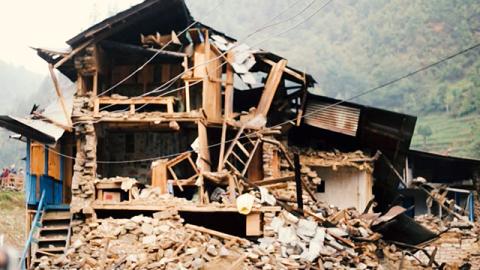
'Love Your Neighbor' Key to Growth of Christianity in Nepal
Christianity is thriving in Nepal despite many obstacles in the country's laws and society.
Nepal is actually home to one of the fastest-growing Christian populations in the world according to Jo Anne Lyon, the General Superintendent of the Wesleyan Church and founder of the Christian aid organization, World Hope International.
In an op-ed in The Christian Post, Lyon said she believes there are probably many reasons for the growth of Christianity, but she said it definitely makes sense in light of the constitution calling for religious freedom.
"One reason I believe the Christian faith is burgeoning in Nepal is the Christian belief in loving your neighbor as yourself," Lyon wrote. "As Christians, we're taught to lead by example. When churches are bombed, we practice peace and prayer and when catastrophe strikes, we offer our hand to those in need, regardless of their faith."
In a country of 28 million where Hinduism is the main religion, Christians in Nepal are significantly outnumbered. They comprise less than 1.5 percent.
The country is a secular state under a new constitution, and it technically upholds freedom of religion.
However, if someone tries to convert an individual from one religion to another, the constitution labels that a crime.
Christianity is also socially unacceptable, and Christians often are the victims of violence and oppression. For decades, followers of Christ in Nepal have battled unequal treatment and persecution.
"While reflecting on the growth the Wesleyan church has experienced in the country, I'm reminded of the story of a young woman living in rural Nepal, Binita," Lyon said.
"She was inspired by the love of Christ and decided to stop practicing Hinduism and instead elected to become a believer in Jesus Christ. Despite facing intense stigma and rejection by her community, Binita began a church in her village, which was destroyed after the April 25, 2015 earthquake struck Nepal. She and her congregation were safe but they, along with other local villagers, were left without shelter and supplies to recover from the earthquake," Lyon wrote.
Lyon went on to tell that a "Trek Team" with the Christian relief and development organization, World Hope International, assisted Binita and other villagers.
"Embodying the love of Christ, the Trek Team endured challenging backpacking through mountains and treacherous terrains along with road trips lasting over 18 hours to deliver over 2,000 pounds of relief supplies, including water filtration supplies and industrial strength tents to people like Binita in Nepal's remote regions who had not yet received any assistance," she wrote.
Lyon wrote that even though Binita was excluded by other Nepal villagers because of her faith, she remained true to Christ and even helped those who had ostracized her.
Eventually the love that Binita showed caused her community to welcome her.
"It's love like this that helps to propel the Christian faith in countries like Nepal," Lyon wrote. "It's also why countries with greater religious freedoms are generally more peaceful, have greater degrees of gender equality, and also have more stable economies."
Lyon hopes "true religious freedom" becomes a part of daily life in Nepal, "allowing people to love Christ and each other to achieve greater prosperity."
"Let us pray for Nepal and for Christianity to spread its roots to other parts of the world," she wrote.




